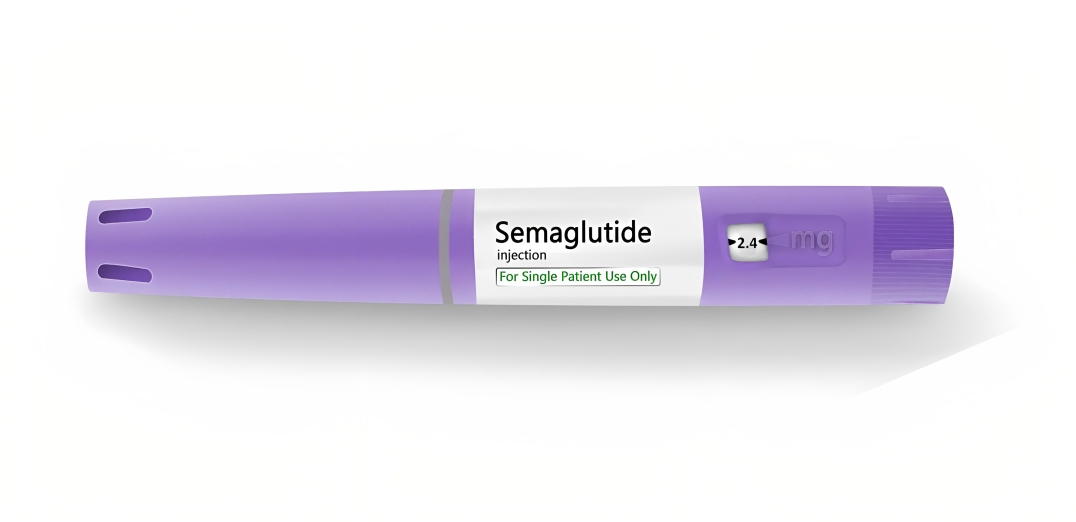司美格鲁肽:能否成为戒酒的“神药”?
In the cutting-edge realm of medical research,a drug originally used for weight loss and diabetes treatment—semaglutide—is showing astonishing new potential:it may become a powerful weapon against alcohol addiction.As research progresses,more and more evidence suggests that glucagon-like peptide-1 receptor agonists(GLP-1RAs)might emerge as a“new star”in the treatment of addictive disorders.
In past experiments,researchers discovered that some older GLP-1RA drugs,such as exenatide and liraglutide,could suppress the desire for alcohol intake in animals.Now,semaglutide has truly caught the attention of scientists.Recent studies have shown that it not only reduces self-administration behavior in mice,rats,and non-human primates but also significantly lowers alcohol intake in human subjects.On February 12,a study published in theJournal of the American Medical Association Psychiatryprovided strong evidence for this finding.

In this study,researchers found that low doses of semaglutide could significantly reduce the amount of alcohol consumed by subjects.Both the volume of alcohol intake and the peak alcohol concentration in breath tests showed remarkable results.What’s more,semaglutide also significantly suppressed subjects’weekly cravings for alcohol.Over time,these cravings gradually weakened,ultimately“putting the desire to drink alcohol to rest.”Additionally,among current smokers,semaglutide demonstrated a“therapeutic effect that increased over time,”with a relatively larger reduction in daily cigarette consumption compared to a placebo.
However,despite these encouraging findings,researchers caution that these conclusions are not yet“set in stone.”This was a Phase II,double-blind,randomized,and parallel-arm trial with a“moderate”scale,recruiting only 48 participants and lasting for just 9 weeks.The administration of semaglutide was done in a way to maximize safety,which might have limited the detection of significant effects.
Nevertheless,the results of this study still open up new horizons for the therapeutic value of GLP-1 therapy.Increasing evidence suggests that the potential of GLP-1 therapy extends beyond diabetes and weight loss.It also shows great promise in the treatment of addictive disorders.Previously,a study published in theAnnals of Internal Medicinein July 2024 found that patients taking semaglutide were less likely to seek medical help for tobacco use disorders compared to other diabetes treatments.In September of the same year,a retrospective cohort study published inJAMA Network Openlinked the use of Ozempic(a brand name for semaglutide)to a reduced risk of opioid overdose among patients with type 2 diabetes.
Currently,the exploration of GLP-1 therapy for addictive disorders in the pharmaceutical field is still in its infancy,with most work being conducted in universities and government institutions.However,according to a report in December last year,Eli Lilly is also preparing to conduct large-scale research on its obesity assets for alcohol and drug abuse.

Although the current research on semaglutide in suppressing alcohol addiction has limitations,it has already shown certain potential.In the future,we have reason to expect that through larger-scale and better-designed studies,the application of GLP-1 receptor agonists in the treatment of addictive disorders will be further explored,ultimately clarifying their potential as an emerging therapy for addictive disorders.
Thank you for your attention and support! We are a company specializing in the research, development, and production of GLP-1 API (Active Pharmaceutical Ingredient), committed to providing high-quality raw pharmaceutical products to our clients. If you have any related needs or would like to learn more, please feel free to contact us at any time!
Contact Information:
Email: laura@horwats.com
Phone: +86 19052757106
We look forward to collaborating with you to drive progress in the pharmaceutical and healthcare fields, delivering better medical solutions to patients worldwide!




